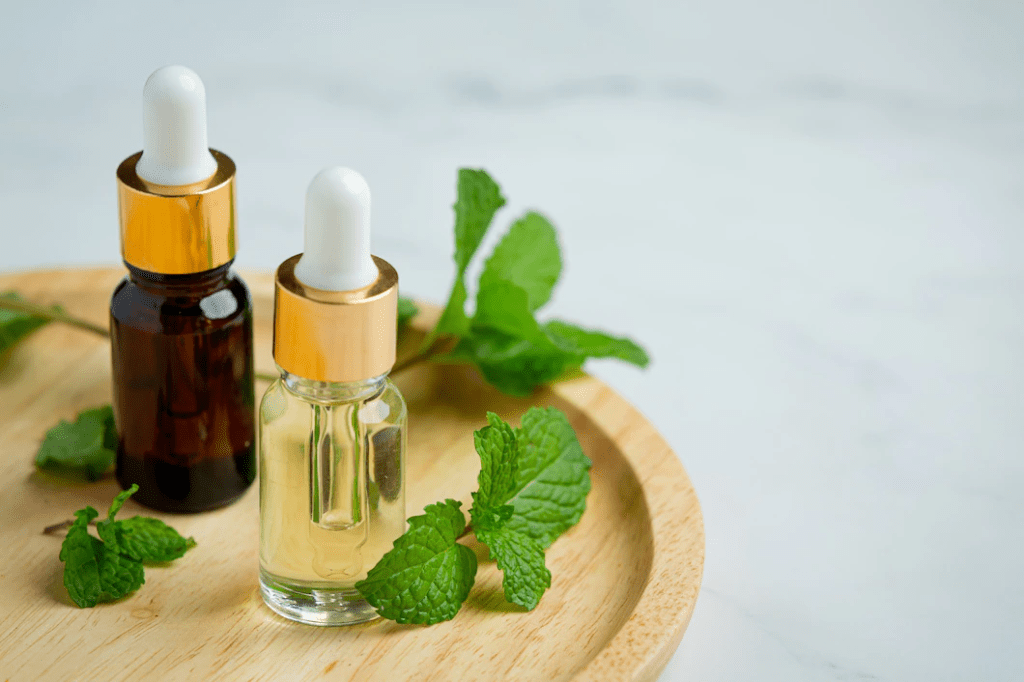Premature ejaculation is a common sexual dysfunction that affects a significant number of men. It refers to the inability to control ejaculation, resulting in orgasm occurring sooner than desired during sexual intercourse. This condition can lead to frustration, anxiety, and dissatisfaction in both partners. Understanding the causes, symptoms, possible illnesses, and available natural remedies is essential for those affected by premature ejaculation. In this article, we will delve into these aspects, particularly focusing on premature ejaculation in teenagers.
Causes of Premature Ejaculation
Premature ejaculation is a frustrating condition that affects countless men. Understanding the causes of this sexual dysfunction is crucial for effective treatment. In this article, we will explore the various factors that can contribute to premature ejaculation, shedding light on the underlying causes.
- Psychological Factors: Psychological issues play a significant role in premature ejaculation. Performance anxiety, stress, depression, and relationship problems can all contribute to early climax. Negative sexual experiences or a history of sexual repression can also impact ejaculatory control.
- Biological Factors: Certain biological factors can contribute to premature ejaculation. Hormonal imbalances, specifically abnormal levels of serotonin, a neurotransmitter that regulates mood and ejaculation, may play a role. Inflammation or infection of the prostate or urethra can also contribute to this condition.
- Medical Conditions: Premature ejaculation can be a symptom of underlying medical conditions. Conditions such as erectile dysfunction, prostatitis (inflammation of the prostate gland), or urethritis (inflammation of the urethra) can disrupt normal ejaculation patterns.
- Genetic Predisposition: Research suggests that genetics may influence premature ejaculation. Some individuals may have an inherent predisposition to ejaculate quickly, which can be exacerbated by psychological and environmental factors.
- Sexual Habits: Certain sexual habits can contribute to premature ejaculation. Infrequent sexual activity or prolonged periods of sexual abstinence may increase sensitivity and lead to early climax. In contrast, a history of rushed or hurried sexual encounters can condition the body to ejaculate quickly.
- Relationship Dynamics: Relationship dynamics can impact sexual performance. Poor communication, unresolved conflicts, or a lack of emotional intimacy can contribute to premature ejaculation. The pressure to please a partner or meet unrealistic expectations can also trigger early climax.
Symptoms of Premature Ejaculation: Recognizing the Signs of PE
Premature ejaculation (PE) is a frustrating condition that can significantly impact sexual satisfaction and relationships. Recognizing the symptoms of PE is crucial for early identification and seeking appropriate treatment. In this article, we will delve into the key symptoms of premature ejaculation, helping you better understand this common sexual disorder.
- Rapid Ejaculation: The primary symptom of premature ejaculation is the inability to delay ejaculation during sexual activity. Ejaculation may occur within one minute of penetration, leaving both partners unsatisfied.
- Lack of Ejaculatory Control: Individuals with PE often experience a lack of control over their ejaculatory response. They may find it challenging to delay or prolong ejaculation, regardless of the sexual stimulation they receive.
- Emotional Distress: Premature ejaculation can lead to significant emotional distress for both partners. The individual experiencing PE may feel frustrated, anxious, or embarrassed about their inability to satisfy their partner. Similarly, their partner may feel disappointed or sexually unsatisfied.
- Impact on Relationships: PE can strain intimate relationships, leading to decreased sexual intimacy and increased relationship tension. The frustration and dissatisfaction caused by PE may result in decreased sexual desire and overall relationship dissatisfaction.
- Negative Self-esteem: Men with premature ejaculation often experience a negative impact on their self-esteem and self-confidence. They may feel inadequate, ashamed, or less masculine due to their perceived sexual performance issues.
- Avoidance of Sexual Activity: Individuals with PE may actively avoid sexual activity or intimacy to prevent the embarrassment and anxiety associated with premature ejaculation. This avoidance can further strain the relationship and hinder sexual satisfaction.
- Anxiety and Depression: Chronic PE can contribute to the development or exacerbation of anxiety or depression. The persistent frustration and emotional distress associated with PE can significantly impact one’s overall mental well-being.

Possible Illnesses Associated with Premature Ejaculation: Exploring Underlying Conditions
Premature ejaculation, a distressing sexual dysfunction, can sometimes be a symptom of underlying illnesses. Identifying and addressing these potential conditions is crucial in effectively managing the issue. In this article, we will delve into the possible illnesses associated with premature ejaculation, shedding light on their impact and the importance of seeking medical advice for proper diagnosis and treatment.
- Erectile Dysfunction (ED)
Erectile dysfunction, commonly known as ED, is a condition characterized by the inability to achieve or maintain an erection sufficient for satisfactory sexual performance. It often coexists with premature ejaculation, and the two conditions can exacerbate one another. Underlying causes such as vascular issues, hormonal imbalances, or psychological factors may contribute to both ED and premature ejaculation. Seeking medical attention can help identify the root cause and develop an appropriate treatment plan.
- Prostatitis
Prostatitis, inflammation of the prostate gland, can lead to various symptoms, including pain or discomfort in the pelvic region, urinary problems, and sexual dysfunction. In some cases, chronic prostatitis can contribute to premature ejaculation. Treating the underlying prostatitis through medication, lifestyle changes, and sometimes physical therapy can help alleviate both the inflammation and associated sexual issues.
- Urethritis
Urethritis, inflammation of the urethra, can be caused by infections such as sexually transmitted infections (STIs) or non-infectious factors. Inflammation in the urethra can disrupt normal sexual function, potentially leading to premature ejaculation. Identifying and treating the underlying cause of urethritis, whether it’s an infection or another factor, is crucial in resolving both the inflammation and associated sexual issues.
- Hormonal Imbalances
Hormonal imbalances, such as low testosterone levels, can contribute to sexual dysfunctions, including premature ejaculation. Testosterone plays a vital role in regulating sexual function, and insufficient levels can affect ejaculatory control. Consulting with a healthcare professional and undergoing hormone level testing can help determine if hormonal imbalances are contributing to premature ejaculation.
- Psychological Factors
While not strictly an illness, psychological factors can significantly impact sexual function, including premature ejaculation. Conditions such as anxiety, depression, performance anxiety, or relationship issues can contribute to sexual dysfunction. Addressing these psychological factors through therapy, counseling, or other appropriate interventions can help improve ejaculatory control and overall sexual well-being.
Premature Ejaculation in Teenagers: What You Should Know
Premature ejaculation is a prevalent concern that can impact men of all ages, including teenagers. As a parent or a teenager experiencing this issue, it’s essential to have a comprehensive understanding of premature ejaculation in teenagers. In this article, we will explore the causes, symptoms, and effective strategies to address this concern, providing valuable insights and guidance.
Addressing Premature Ejaculation in Teenagers
Dealing with premature ejaculation in teenagers requires a multidimensional approach that involves emotional support, education, and practical techniques. Here are some strategies that can be effective:
- Open communication: Creating a safe and non-judgmental space for teenagers to discuss their concerns openly is crucial. Parents should initiate conversations about sexual health and provide accurate information to dispel myths or misconceptions.
- Education and awareness: Teenagers should be educated about the normal variations in sexual performance and the factors that can contribute to premature ejaculation. Understanding that this issue is common and temporary can alleviate anxiety and self-doubt.
- Relaxation techniques: Teaching teenagers relaxation techniques, such as deep breathing exercises or mindfulness, can help reduce performance anxiety and promote overall relaxation during sexual activity.
- Exploring techniques: Encouraging teenagers to explore techniques like the stop-start method or the squeeze technique can assist in prolonging sexual activity and delaying ejaculation. These methods involve interrupting stimulation or applying pressure to the base of the penis.
- Seeking professional guidance: If premature ejaculation persists or causes significant distress, it’s advisable to seek guidance from a healthcare professional or a qualified sex therapist. They can provide specialized advice, counseling, and additional treatment options if necessary.

Natural Remedies to Treat Premature Ejaculation at Home
Premature ejaculation is a distressing condition that affects many men. While medical treatments are available, some individuals prefer exploring natural remedies to address this issue. If you’re seeking effective solutions to treat premature ejaculation at home, consider these natural remedies that can help improve your sexual experience.
1. Pelvic Floor Exercises for Ejaculatory Control
Pelvic floor exercises, such as Kegels, are known to strengthen the muscles involved in ejaculation. By regularly practicing these exercises, you can enhance your ejaculatory control and delay orgasm. To perform Kegels, simply contract and relax the pelvic floor muscles repeatedly. Incorporating this simple exercise into your daily routine may significantly improve premature ejaculation symptoms.
2. Masturbation Techniques for Delaying Ejaculation
Masturbation techniques like the stop-start method and the squeeze technique can be useful in managing premature ejaculation. The stop-start method involves stimulating yourself until you feel close to ejaculation, then pausing and resuming after the sensation subsides. This technique allows you to gain better control over your arousal levels. Similarly, the squeeze technique involves gently squeezing the base of the penis when you’re about to ejaculate, effectively delaying orgasm.
3. Embrace a Healthy Lifestyle
Maintaining a healthy lifestyle can positively impact your sexual performance. Engaging in regular physical exercise not only enhances your overall well-being but can also improve sexual stamina and control. A balanced diet, rich in essential nutrients, supports reproductive health. Additionally, managing stress levels through relaxation techniques, such as meditation or deep breathing exercises, can alleviate anxiety associated with premature ejaculation.
4. Herbal Supplements to Enhance Sexual Function
Certain herbal supplements have been traditionally used to improve sexual function and address premature ejaculation. Ginseng and Tribulus terrestris are examples of herbs that may offer benefits in this regard. However, it’s important to consult with a healthcare professional before incorporating any herbal supplements into your routine. They can assess potential interactions with medications or existing health conditions, ensuring your safety and the effectiveness of the supplements.
By utilizing these natural remedies, you can take proactive steps toward managing premature ejaculation and enhancing your sexual experience. Remember, it’s always advisable to seek guidance from a healthcare professional to tailor these remedies to your specific needs and ensure optimal results.
In summary, premature ejaculation is a common issue that can affect men of all ages, including teenagers. Understanding the causes, symptoms, and potential illnesses associated with premature ejaculation is essential in finding appropriate treatment options. Natural remedies, when used in conjunction with medical guidance, can be a valuable approach to managing premature ejaculation. Remember to consult with a healthcare professional for personalized advice based on your specific circumstances.
*Disclaimer: The information provided in this article is for informational purposes only and should not be considered a substitute for professional medical advice, diagnosis, or treatment. Always seek the advice of a qualified healthcare provider with any questions you may have regarding premature ejaculation or any other medical condition. Reliance on any information provided in this article is solely at your own risk.
Author Information
Contributed by
Author Contribution: Reviewed by Dr. Ram Reddy, MD – General Physician, and Rajeshwar Rao, PharmD.
